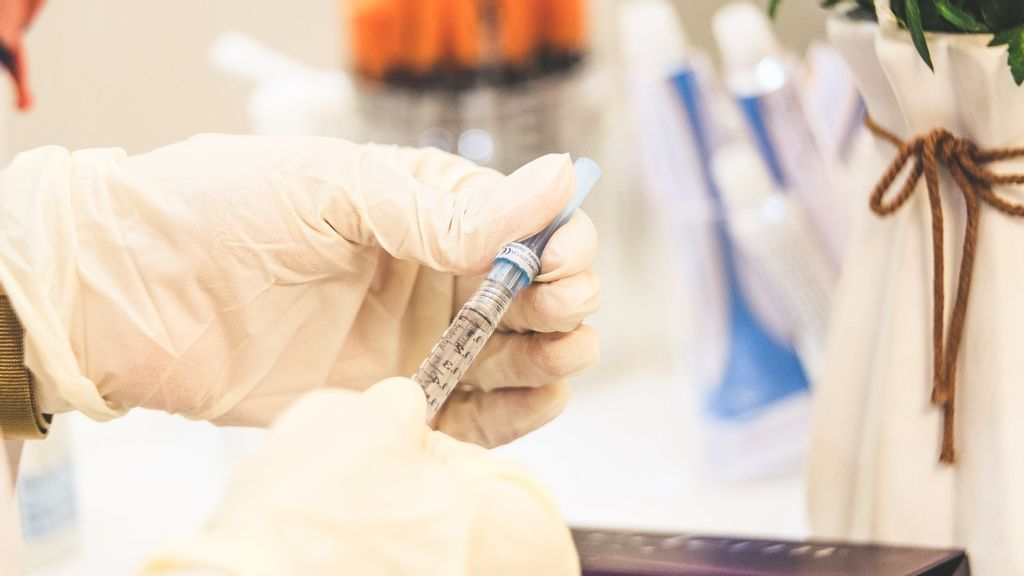A system to deliver insulin through an implanted pump that could be refilled by an ingestible capsule is being developed by Italian researchers. The device could potentially replace daily injections for people with Type 1 diabetes.
About 1.6 million Americans have Type 1 diabetes, an autoimmune disease that occurs when a person’s pancreas stops producing insulin, the hormone that controls blood-sugar levels, the Juvenile Diabetes Research Foundation (JDRF) states. There is no cure, and the most common treatment includes injected doses of insulin, as well as following dietary guidelines.
But injections could become a thing of the past if the PILLSID system being developed by scientists is found to be safe and commercially viable. The two-component system includes an implantable insulin pump and an ingestible magnetic hormone capsule.
The process is similar to a cargo rocket launching into space and docking on the International Space Station, said Arianna Menciassi, lead author of the study recently in Science Robotics on Aug. 18. Menciassi is a biomedical robotics and bioengineering professor at Sant’Anna School of Advanced Studies in Pisa.
“The insulin pump can deliver insulin with high precision when required,” Menciassi told Zenger. “This capability enables the pump to deliver the correct insulin amount while limiting the risk for hyperglycemia and hypoglycemia episodes. If combined with a glucose sensor and with a dedicated control algorithm, the pump might work in a closed-loop to restore the physiological blood glucose level regulation.”
This experimental device is the result of collaboration between the BioRobotics Institute of Sant’Anna School and the University of Pisa. The institute of BioRobotics has longstanding experience in mini-invasive therapy and surgery.
The researchers previously developed magnetic-controlled capsules for monitoring the gastrointestinal system. These capsules have now been engineered to carry and refill insulin pumps in the cavity containing the body’s abdominal organs.
The pump is placed on the external wall of an intestinal loop and releases insulin into the peritoneum according to prevalent glucose levels via a control algorithm (closed-loop system). When the pump needs to be refilled, a nanocapsule loaded with concentrated insulin is ingested.
“The capsule navigates and anchors, via a magnetic mechanism, on the intestinal wall opposite to the pump,” said Dr. Stefano Del Prato, professor of endocrinology and metabolism at the University of Pisa’s School of Medicine. “Insulin can then be transferred into the insulin pump reservoir by automatic puncture of the intestinal wall. The spent capsule is then released and passed through the intestinal tract. Similarly, the pump can be recharged through an electromagnetic belt, thus yielding the first potentially totally implantable artificial pancreas.”
There are existing robotic-like devices that deliver medication with a push of a button. But they use a tube or needle to deliver insulin. In a similar vein, there are implantable devices, but they require a tube protruding from the body in order to be refilled. The fully implantable system is different, said Veronica Iacovacci, postdoctoral fellow at The BioRobotics Institute.
“A fully implantable device has no external component: no leads, no access port, no buttons,” Iacovacci said. “Thanks to the innovative magnetic pill-based refilling strategy and to the possibility to wirelessly transmit data and power, the device can be completely implanted in deep body regions without any physical interface with the extra body space.”
Menciassi said PILLSID could have other uses, such as delivering chemotherapy to people with ovarian, pancreatic, gastric and colorectal cancers. Accuracy is ensured by the onboard electronic system recording motor feedbacks to monitor pump function.
“The robotic device has been preliminarily tested when considering diabetes as a case study. However, the resolution of the pump and the possibility to modulate pump functions by personalizing the control algorithm could allow using the pump in critical conditions and for acute pathologies treatment (e.g., cancer). In that case, the pump would most probably work as a pre-programmed infusion system controlled by a doctor,” she said.
At this stage, the study aims to demonstrate that the proposed refilling procedure could work in vivo [in a living thing], and that the implantable device could safely and efficiently deliver insulin on demand.
Future work will focus on more study of the materials used to encase the device to reduce the risk of infections and any adverse host responses.
The PILLSID research is still in its early stages.
“The system has been evaluated in mini pigs with encouraging results. More work will be required before experimental evaluation can be planned in man. Yet, this sets an important initial step,” Stefano said.
Edited by Judith Isacoff and Matthew B. Hall
The post Insulin Pump Refilled By Ingestible Capsules Could Make Injections Obsolete appeared first on Zenger News.

